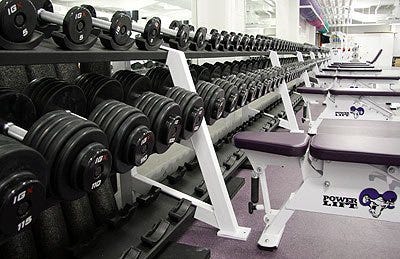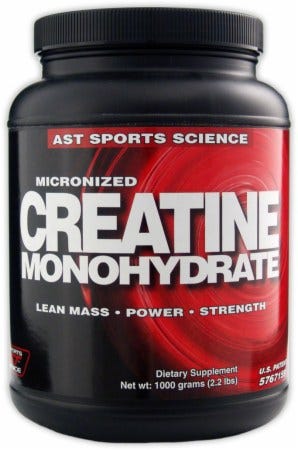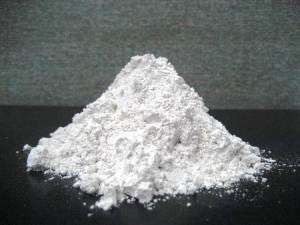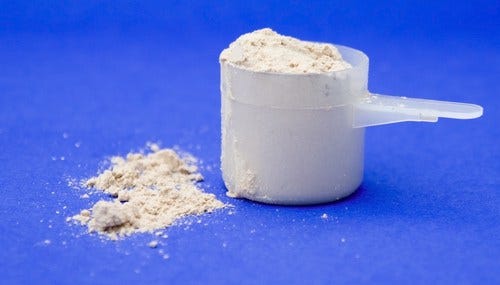EVERYTHING YOU NEED TO KNOW ABOUT CREATINE
DISCLAIMER :Below is the information you should know about any supplement that you decide to take. Remember these Supplements are going…
DISCLAIMER :Below is the information you should know about any supplement that you decide to take. Remember these Supplements are going into your body and you should take all precautions from doing research about the ingredients to consulting your physician and ask Qualified professionals. Don’t just take someones word from it. Remember it is AN INDUSTRY.
Being a strength and conditioning coach, I get asked all sorts of questions concerning fitness, lifting, nutrition, and overall health. One of the most common questions I am asked concerns the use of supplements. As many of you know, there are literally hundreds of different types of supplements and thousands of “products” out there that will claim to transform you into a beast or get you ripped. Most of these supplements (much less products) have ZERO research backing their claims and many have been shown to offer no significant difference when they are properly researched. And please don’t be fooled by the “research done at such and such shows… on an expensive supplement label.” Nearly all of these studies are highly biased toward the products (guess who provided funding for all of it) and typically have almost zero reliability and validity (big research terms for it’s a bunch of bull). And don’t get me started on proprietary blends. However, the good news! There is one supplement out there that has had over 500 published studies (Key word is Published) performed on determining the effects, both short and long term, as well as safety (short and long term) in nearly every possible population you could think of. Have any idea what that might be?
CREATINE MONOHYDRATE!
(AND TO SOME DEGREE THE NEWER, COOLER VERSIONS OF CREATINE, CREATINE ETHYL ESTER AND CREATINE CITRATE)
Now, you have probably heard that creatine will make you stronger and gain more muscle but at the same time it will make you “bloat, muscle cramp, dehydrate you, cause liver and kidney problems, blah, blah, blah.” Every time I hear someone say this all I want to do is go slam my head repeatedly into a wall so I won’t have to listen to the ignorant/dumb comments anymore. Now, I understand that most of the dumb comments come from unreliable sources such as forums and your local gym fitness expert who got his info from a long game of telephone at the gym. So in an effort to rid the world (at least those who read this) of ignorance regarding creatine, I will break down several key research studies into understandable English for everyone.
WHAT IS CREATINE AND WHY WILL IT HELP ME? (THE SCIENCE)
In the body there are 3 energy pathways that your body uses to create ATP (=bodies source of energy), the oxidative system, glycolysis, and the Phosphocreatine system (PCr-ATP). Without getting into too much science, just know that the PCr-ATP system is the fastest means for your body to acquire ATP but is also the most limited. The goal of supplementing creatine monohydrate is to increase the amount of energy supplied by this system. But wait, why am I supplementing creatine monohydrate when the body uses PCr? Just smile and accept that the body readily absorbs and converts creatine monohydrate into creatine phosphate(or you can be a nerd like me and read thispharmacological analysis…my head still hurts from reading this). Most people have most of their creatine “stores” naturally filled through the body’s own production and from a balanced diet, and the goal through supplementation is to completely fill those stores. Creatine levels in the muscles have been shown to increase by 10–40%.5 By allowing your body to get a few more seconds of ATP production, you may be able to get that extra rep and in turn stimulate more muscle growth and strength.
BENEFITS OF CREATINE SUPPLEMENTATION: (DOCUMENTED/RESEARCHED)
Increase in lean body mass: Increases range from 2–10 lbs of lean body mass (vs. placebo group) over the course of 6 week-1 year training periods.1,5,6,10,12,16,17
Improved maximal muscular strength (1 Rep Max) and maximal strength during repetitive bouts (2–10 RM):Creatine supplementation has been shown to improve maximal strength and maximal strength during repetitive exercise by 5–15% over a placebo.1,3,5,6,11,12,14,16,17
Improved anaerobic endurance by reducing rate of fatigue in maximal and near maximal exercise conditions: By allowing you to generate more ATP/energy through the PCr energy system, this delays the need for other and slower energy systems to take over. This allows you to perform at a maximal or near maximal effort for longer periods of time.3,5,12,14,16
Improved single sprint performance: Studies show improvement in single maximal sprint performance by 1–5%.3,5,14,16
Improved performance in repeated sprint performance: Studies show that individuals have improved their repeated spring performance by 5–15%.3,5,14,16
It should be noted that creatine will not help improve performance in sub-maximal exercise bouts such as jogging or walking where the aerobic energy system is the dominant method of energy production.4
DOCUMENTED SIDE EFFECTS OF CREATINE SUPPLEMENTATION:5,10,16
Increase in body mass (To most people this would be a benefit but… there are those that are under weight restrictions for competitions so this would not be a good thing for them)
GI distress (my tummy hurts)
Stomach bloating after ingestion (feeling full)
Proposed side effects of creatine supplementation that have been shown to NOT EXIST yet continue to be spread around due to ignorance, the he said/she said phenomena, fabricated stories, internet “experts”, and straight up lies.
*Warning: If you believe Creatine does any of the following to you, please feel free to check my sources and/or email concerning a topic. However, if you give me any of the sources as mentioned above as your proof, I reserve the right to make fun of you and embarrass you.*
**I apologize in advance; the next section will contain more complex writing. I will be trying to simplify research findings and it can only be done so far.
Dehydration & Cramping: Creatine supplementation leads to an increase in water drawn in the muscles. This is why people see immediate weight gain during the loading phase. Because of water being drawn into the muscle cells, a plausible theory arose in that one could become dehydrated due to the redistribution of water in the body. To test this theory, multiple studies have been performed and all of them found that there was no difference in fluid distribution at rest, during exercise, and even exercise in the heat.2 It has been even proposed that the additional fluid retention could be an advantage during exercise bouts in the heat due to a greater volume of water in the body.9 -Tell that to the next person that says “Creatine will dehydrate you and make you cramp” and see them look dumfounded.
Kidney and liver damage: Creatine is an amino acid and the waste product (creatinine) must be excreted from the body. This is done by the liver and kidneys. The amount of creatinine excreted by the body each day depends on the amount ingested and/or produced. In normal individuals, this amount is approximately 2g per day (the amount naturally produced by the body and found in a normal diet). When supplemented, the creatinine production and excretion will increase to match that of ingestion. This lead to the idea that this increase in excretion would lead to damage to the kidneys and liver. Thus far, every study examining medical markers for kidney and liver health have shown no change with creatine supplementation in both short and long-term supplementation.7,8,10,13
“Shut down natural production”: Creatine is produced by the body from two other amino acids: glycine and arginine. (This metabolic pathway is here so I will not go into the details) It was proposed that supplementing creatine to greater levels than normally seen in the diet would lead to a shutdown of the natural production of creatine. It is true that the natural production of creatine is reduced when supplementing creatine, but it is never shut down. Also, when individuals discontinue supplementing creatine, the body begins to produce creatine at the same rate as before the individual began supplementation.10,16
Increased risk of muscle strain or pull: Due to the documented increases in rapid gains in muscular strength, it has been proposed that this would lead to an increase in risk of muscle strain or pull (degrees of muscle tears) and/or tendon injury. However, all studies examining this potential risk show no evidence of increased risk of injury.5,16
Heart damage and Stroke: I heard this one recently and frankly I am baffled at how this could even be possible much less plausible. Regardless, I did some reviewing of literature and found that creatine supplementation actually improved heart health and reduced risk factors such as high LDL (bad) cholesterol and triglycerides.5,10,16
The last area of concern is to address the term “non-responder” to creatine supplementation. There have been documented cases in research where individuals do not experience the positive effects of creatine even when using proper doses. Why does this happen when so many others get the benefit? The primary theory is that these people (non-responders) have their natural stores at a maximum without need of supplementation. Keep in mind that your body can and will only store so much creatine in the muscles and, these people likely have their natural stores at a maximum.
So what does all this information mean to me? Creatine is effective, safe, cheap (bulk creatine monohydrate powder can be purchased for approx. 20$ per kg), it’s pretty much awesome…period. It is the only supplement (outside of protein) that has been shown in published literature to actually work, and in the scientific community…this is all that counts.
WHY ARE THERE DIFFERENT TYPES OF CREATINE? WHICH ONE IS RIGHT FOR ME?
Creatine monohydrate is the most popular form used for creatine supplementation. It is the cheapest to obtain since it is easily purchased in pure, bulk powder. It is also the most readily absorbed by the body compared to other types of creatine supplements. The primary reason for use of other types of creatine supplements (primarily creatine ethyl ester or CEE and creatine citrate) is that creatine monohydrate can cause gastrointestinal (GI) distress aka an upset stomach. While these other forms are not absorbed as well by the body, they have a lower incidence of GI distress. However, these newer forms are commonly found in your major brand supplements that are quite expensive. In addition to a steep price, they are not absorbed as easily by the body so you have to ingest a greater does to achieve the same effect.15 If you are one that suffers from GI distress when taking creatine monohydrate, there are ways to help limit or eliminate the GI problems. The most common method is to mix the powder with a protein shake rather than water or a sport drink. I suggest you try the pure bulk creatine monohydrate powder before spending the money on a fancy overpriced creatine product.
CREATINE DOSAGE:
Creatine is typically administered in one of two different ways. The first method uses a loading phase then a maintenance phase to maintain maximum creatine levels.5
Ingest 20–25g (4–5 doses of 5g) of creatine for 5 days.
5g of creatine per day after the loading phase.
The second method is to skip the loading phase and just administer the maintenance phase from day 1. While you may not experience a rapid gain of creatine in the body, by day 30 the levels of creatine in the body will be the same regardless of which method you choose. Creatine should be taken every day in both methods while you are supplementing not just on training days.
By now I hope you have a good understanding of creatine is, how it works in the body to help you, how supplementation works, the pros and cons of taking creatine, and how to use it if you choose to do so. I personally love creatine and if you are looking to get stronger, improve sprint performance, and/or gain muscle, I suggest you look into creatine.
Please remember to always research any supplements you may consider taking as to their documented benefits, side effects, and if the supplement is worth your hard earned money.
-Andrew Hutchins, MS CSCS
Becque, M. D., Lochman, J. D., & Melrose, D. R. (2000). Effects of oral creatine supplementation on muscular strength and body composition. Medicine & Science in Sports & Exercise, 32:3, 654–658.
Greenwood, M., Kreider, R. B., Melton, C., Rasmussen, C., Lancaster, S., Cantler, E., Milnor, P., & Almada, A. (2003) Creatine supplementation during college football training does not increase the incidence of cramping or injury. Molecular and Cellular Biochemistry, 244: 83–88.
Izquierdo, M., Ibañez, J., González-Badillo, J. J., & Gorostiaga, E. M. (2002). Effects of creatine supplementation on muscle power, endurance, and sprint performance. Medicine & Science in Sport & Exercise, 34:2, 332–343.
Jones, A. M., Carter, H., Pringle, J. S. M., & Campbell, I. T. (2002). Effect of creatine supplementation on oxygen uptake kinetics during submaximal exercise. Journal of Applied Physiology, 92:2571–2577.doi:10.1152/japplphysiol.01065.2001.
Kalman, D. (2004) A close look at creatine monohydrate.NSCA’s Sport Performance Training Journal, 3:5, 20–22.
Kreider, R.B. (2003) Effects of creatine supplementation on performance and training adaptations. Molecular and Cellular Biochemistry, 244, 89–94.
Kreider, R. B., Melton, C., Rasmussen, C. J., Greenwood, M., Lancaster, S., Cantler, E. C., Milnor, P., & Almada, A. L. (2003). Long-term creatine supplementation does not affect clinical markers of health in athletes. Molecular and Cellular Biochemistry, 244, 95–104.
Poortmans, J. R., & Francaux M. (1999). Long-term creatine supplementation does not impair renal function in healthy athletes. Medicine & Science in Sports & Exercise, 31:8, 1108–1110.
Powers, M. E., Arnold, B. L., Weltman, A. L., Perrin, D. H., Mistry, D., Kahler, D. M., Kraemer, W., & Volek, J. ( 2003). Creatine supplementation increases total body water without altering fluid distribution. Journal of Athletic Training, 38:1, 44–50
Persky, A. M., Brazeau, G. A (2001). Clinincal pharmacology of the dietary supplement creatine monohydrate. Pharmacology Reviews. 53:2, 161–176.
Rawson, E. S., Gunn, B., & Clarkson, P. M. (2001). The effects of creatine supplementation on exercise-induced muscle damage. Journal of Strength and Conditioning Research, 15:2, 178–184.
Rawson, E. S., & Volek, J. S. (2003). Effects of creatine supplementation and resistance training on muscle strength and weightlifting performance. Journal of Strength and Conditioning Research, 17(4), 822–831.
Robinson, T. M., Sewell, D.A., Casey, A., Steenage, G., Greenhaff, P.L. (2000) Dietary creatine supplementation does not affect some haematological indices, or indices of muscle damage and hepatic and renal function. British Journal of Sports Medicine. 34:284–288.
Snow, R.J., McKenna, M. J., Selig, S. E., Kemp, J., Stathis, C. G., & Zhao, S. ( 1998). Effect of creatine supplementation on sprint exercise performance and muscle metabolism.Journal of Applied Physiology, 84:1667–1673.
Spillane, M., Schoch R., Cooke, M., Harvey, T., Greenwood, M., Kreider, R., & Willoughby, D. (2009). The effects of creatine ethyl ester supplementation combined with heavy resistance training on body composition, muscle performance, and serum and muscle creatine levels. Journal of the International Society of Sports Nutrition, 6:6. doi:10.1186/1550–2783–6–6.
Williams, M. H., & Branch, J. D. (1998). Creatine supplementation and exercise performance: an update.Journal of the American College of Nutrition, 17:3, 216–234.
Vandenberghe, K., Goris, M., Van Hecke, P., Van Leemputte, M., Vangerven, L., & Hespel, P. (1997). Long-term creatine intake is beneficial to muscle performance during resistance training. Journal of Applied Physiology, 83, 2055–2063.







